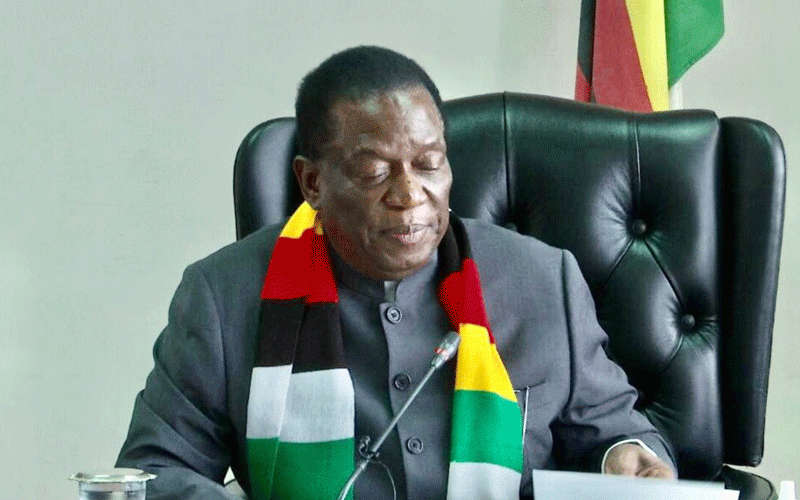
President Emmerson Mnangagwa last week eventually declared the drought caused by the climate condition known as El Nino a national disaster, as pressure bore on his government to start mobilising resources to feed a big number of Zimbabweans that will not have enough food stocks due to poor harvests.
Mnangagwa said the country needs US$2 billion to assist poor families throughout the year and the declaration of the drought as a disaster is meant to invite donor agencies to step in.
Zimbabwe became the third country after Zambia and Malawi to declare the drought a national disaster.
Aid agencies estimate that already, 2.7 million Zimbabweans do not have enough food and the number is set to increase significantly as families exhaust their stocks from previous seasons.
El Nino is a naturally occurring climate pattern, which emerged mid-last year and resulted in much lower rainfall during the 2023/24 season.
The phenomenon has also been attributed to high temperatures and experts say this pattern will persist until May.
Crops were a write-off in most parts of Zimbabwe and there was not enough rainfall for pastures to regenerate and dams recorded very low inflows.
There was enough time for the government to plan for the disaster, but as usual, authorities used propaganda to delay the inevitable.
- Mr President, you missed the opportunity to be the veritable voice of conscience
- ED to commission new-look border post
- Zanu PF ready for congress
- EU slams Zim over delayed reforms
Keep Reading
The government claimed the country had enough grain stocks to see families through the lean season.
From the previous seasons there were claims of a maize surplus, but even during that time Zimbabwe was importing maize in huge quantities.
It has emerged that Mnangagwa was forced to declare the drought a disaster by pressure from aid agencies who cautioned that humanitarian organisations would prioritise countries that had publicly made appeals for assistance.
Zimbabwe was in danger of being left out and the reason for that lethargy can be found in the false reports by the Ministry of Agriculture on the status of the country’s food reserves.
Mnangangwa’s biographer Eddie Cross first disclosed that the president was being fed false information about the grain reserves last month.
In his latest blog, Cross says Zimbabwe has about 200 000 tonnes of grain in government stocks and this would last the country up to August.
In December, Agriculture minister Anxious Masuka claimed the country had enough maize to last for 11 months. The lies have since been exposed by both Cross and Mnangagwa’s declarations.
The big lesson is that propaganda has its limitations and should not be used to toy around with people’s livelihoods.







